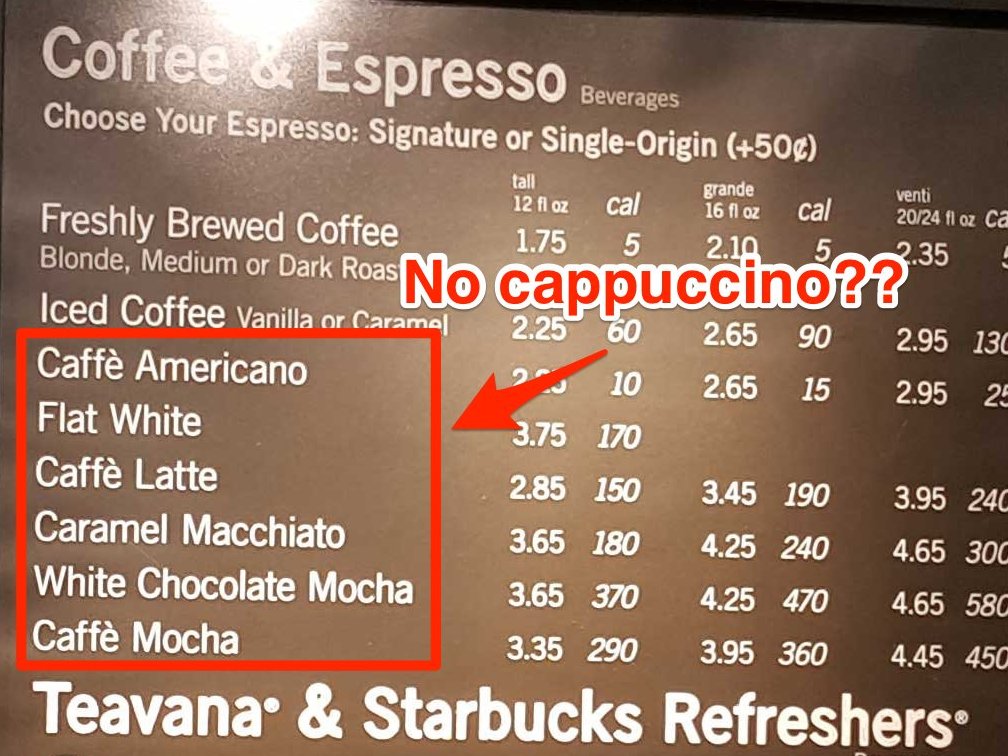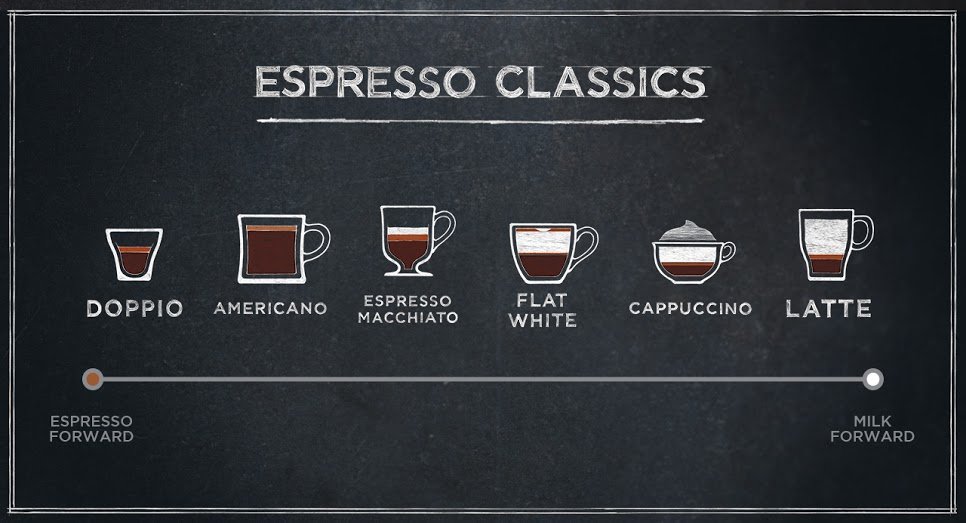Franchising, retail, business

04/06/2015
The cappuccino is one of the most basic espresso drinks, and it has been on the menu at Starbucks since current CEO Howard Schultz added it in 1986.
Yet recently Starbucks stopped listing the cappuccino on the menu in many of its stores, even while continuing to serve the drink to anyone who orders it. We noticed this at stores in New York City and got people to confirm it in San Francisco and Seattle, though a source says the drink is still listed in London.
When asked to comment, Starbucks only noted that menu boards differed around the world based on what the brand chose to highlight each season in a given location and, again, that the drink is still available to people who order it.
Still, we think the decline of this seminal drink has interesting implications and in fact makes perfect sense.
It used to be you could get an espresso (a shot of strong coffee), an espresso macchiato (espresso with a dash of milk foam), a cappuccino (an espresso topped with a deep layer of foamy steamed milk), or a latte (an espresso topped with steamed milk and a layer of foam) at Starbucks.
When made in the Italian style that Schultz admires, a cappuccino and a latte are distinctly different, the former wonderfully light and tasting strongly of coffee, with the latter heavier and tasting more strongly of milk and whatever flavors are added. When the milk is not adequately foamed, however, a cappuccino ends up looking identical to a latte, and baristas around the world screw this up.
Starbucks (where I used to work) makes cappuccinos relatively well thanks to careful barista training, but it's hard to get a good foam-to-milk ratio with the brand's giant sizes, which is why even Starbucks screws it up, perhaps now more than ever as rapid expansion limits quality control.
Given these complications, it was confusing this year when the chain introduced the flat white, an Australian drink that in Starbucks' interpretation is made with two super-strong espresso shots plus velvety foamed milk. People didn't understand how this drink differed from the latte and the cappuccino, and in my experience Starbucks baristas were also baffled.
But the flat white makes a lot more sense if Starbucks is deemphasizing the cappuccino.
After all, the default version of the flat white offers a greater contrast to a latte than does a cappuccino, though this is due more to how Starbucks makes the drinks than to their inherent qualities. Starbucks puts two ristretto shots in a tall flat white, while tall cappuccinos and tall lattes contain only one normal shot, so the flat white has a stronger coffee taste. Also Starbucks uses whole milk for flat whites, as opposed to 2% for cappuccinos and lattes, so the milk has a different taste, too.
Moreover, Starbucks has taken the opportunity to list only the 12-ounce size of the flat white, presumably because the consistency of foam you can get at a smaller size helps distinguish the drink from a latte (while it listed all three sizes for the cappuccino, even though the smallest size made for the best drink). You can still order larger flat whites, but the brand is clearly promoting the smallest size.
All things considered, a menu with the flat white and the latte (rather than the cappuccino and the latte) offers more variety and greater margin for error.
Is the cappuccino going off the menu for good? The brand clearly isn't ready to go that far, but it says a lot that many stores have taken it off the menu, and the shift actually makes a lot of sense.
Also notable: If this is a concession to the inability of baristas to distinguish properly between a cappuccino and a latte, then it's yet another sign that most humans can't keep up with robots, who can already make both drinks perfectly. All things considered, that's a bad sign for Starbucks.
Fonte:http://uk.businessinsider.com/starbucks-cappuccino-off-the-menu-2015-6?r=US